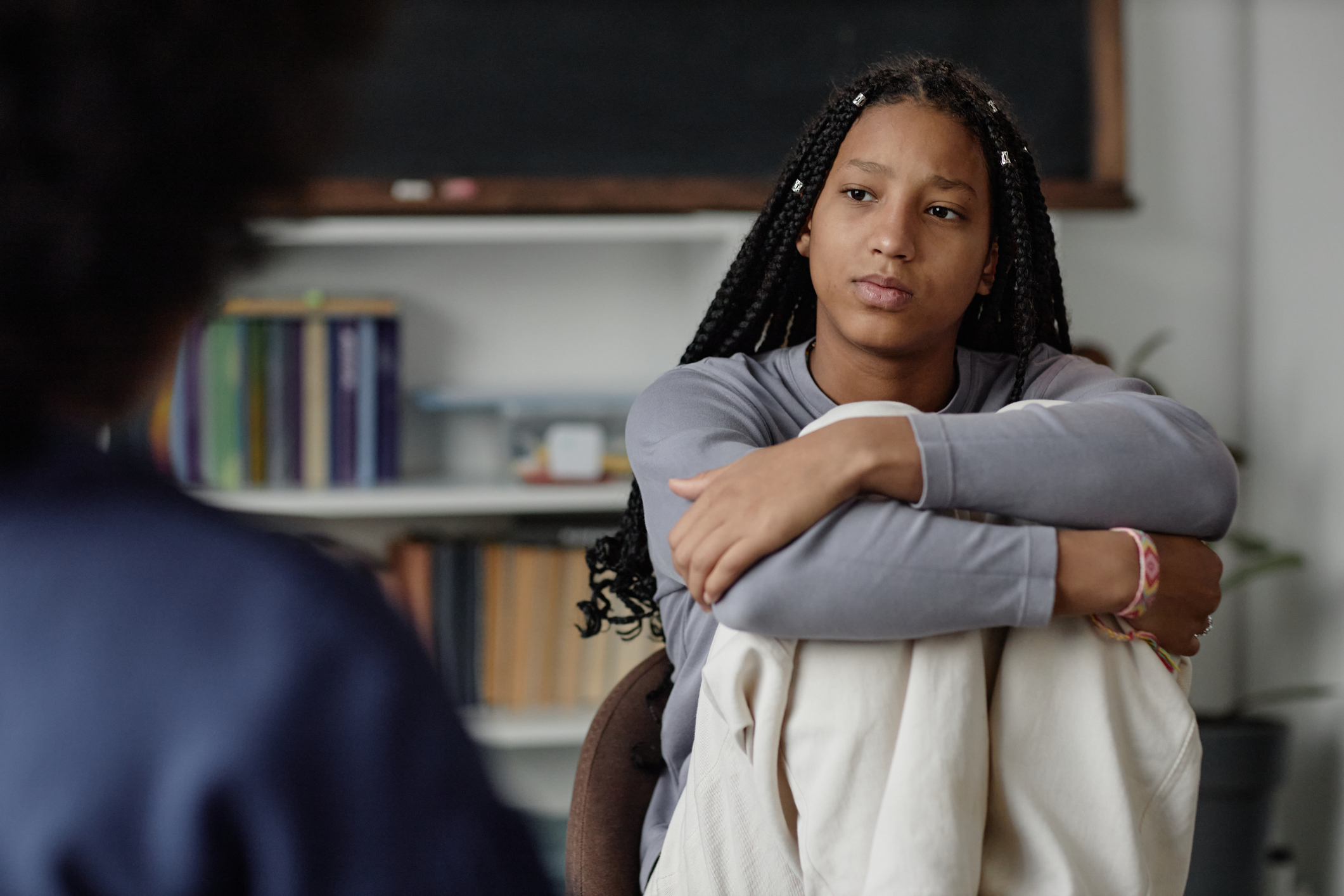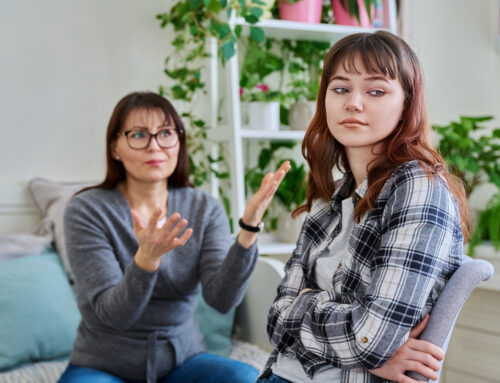The Community Resiliency Model: Helping NC Teens Build Coping Skills and Confidence

North Carolina teens in 2025 face a wide range of anxieties, including ripple effects from the pandemic, academic stress, and social pressures. These stressors show up in troubling ways – withdrawal, anger, and risky choices like underage drinking.
According to a 2024 report, North Carolina ranks 42nd in youth mental health outcomes and access to care. Formal diagnoses of depression and anxiety among youth have increased by nearly 49% between 2016 and 2022, and a 2023 Youth Risk Behavior Surveilence System study found that in a class of 30 high school students, about 12 reported feeling sad or hopeless almost every day for two or more weeks in a row.
Parents, educators, and prevention professionals are urgently seeking tools to support young people’s well-being. One science-backed approach that is gaining momentum across the state is the Community Resiliency Model (CRM)® a body-based, practical set of wellness skills to help youth regulate their nervous systems, reduce emotional overwhelm, and build confidence from the inside out.
What Is the Community Resiliency Model (CRM)®?
CRM is an evidence-based set of wellness skills that help people learn how to track their nervous system and return to balance after stress. The model teaches individuals to expand their “Resilient Zone” – the place where we can function and feel our best – using simple CRM skills like:
- Tracking – paying attention to sensations in the body in the present moment (i.e., physical experiences in the body).
- Resourcing – identifying things in your life that bring joy, comfort, strength, peace, or happiness, and noticing the sensations in the body connected to that resource.
- Grounding – finding a comfortable position and bringing your attention to how your body is making contact with a surface.
- Gesturing – intentional movement and gestures that are self-soothing, joyous, or spiritual, or reflect mind-body wholeness.
- Help Now! Reset Now! – 10 quick actions you can take to return to your Resilient Zone when you get bumped High or Low.
“Learning CRM helps to create a community with more compassion and empathy,” says Tamra Church, Program Coordinator Supervisor for Talk it Out NC. Adopting the Community Resiliency Model keeps teens, parents, mentors, and community members focused on hope and optimism, helping curb potentially destructive behaviors.
“CRM skills are easy to learn by individuals across the lifespan, across cultures, and with different abilities,” says Church. “This model stood out to me as a way to help move my community towards becoming more resiliency-focused, shifting how we perceive and respond to stressors, both individually and as a community.”
Why the Community Resiliency Model Matters for Teens and Adults
CRM is a game changer in communities where young people are facing persistent adversity. Dr. Jennifer Matthews, a professor and substance use researcher at East Carolina University, specifically notes that the model gives parents practical steps to strengthen their teen’s ability to cope.
“Simply understanding how stressors impact the brain and body of their children is powerful,” Dr. Matthews said. “It changes the conversation from ‘Why is my kid so bad?’ to ‘What happened to my child that is causing them to show up this way?’”
This shift in understanding helps caregivers approach teen behavior with compassion rather than judgment and gives them tools to support emotional regulation in their children and themselves.
Licensed mental health clinician Kia Glosson also emphasizes how CRM builds self-compassion for both teens and parents:
“As a highly sensitive person, before CRM, I often felt a lot of chaos inside myself, so learning about my nervous system—and simple skills to bring it back into balance—has been life-changing,” Glosson says. “[The Community Resiliency Model] gives simple, practical steps we do have control over—tools to help both parents and teens calm their bodies and reset when life feels overwhelming.”
Real Stories, Real Change: CRM in Action
The Community Resiliency Model isn’t just theoretical: it’s transforming homes, courtrooms, and classrooms across North Carolina.
- Korey Deveaux, Lead Court Counselor for NCDPS Juvenile Justice & Delinquency Prevention, uses the model to help youth with trauma histories avoid harmful behaviors like substance use: “Educating youth about resilience and CRM skills can help them overcome stressful moments and keep them from engaging in negative behaviors.”
- At home, Dr. Matthews credits CRM with helping her own family thrive after taking in a young relative and enduring the challenges of the COVID lockdowns. “I started practicing the skills often and slowly saw improvements. I taught my kids the skills, as well. It was a long road, but (now) we have a common language. My children can utilize the skills I have taught, and they tell me all the time how they use them at school.”
- Glosson notes that teaching the model’s concepts are important for the whole family, not just for teens facing stress: “When parents practice this, they model it for their teens, and it shows their kids healthier ways to cope.”
How the Community Resiliency Model Supports Conversations About Underage Drinking
Many teens turn to alcohol not out of defiance, but because they’re trying to escape intense emotional discomfort. CRM offers a healthy alternative, giving youth tools to stay grounded and navigate emotions more effectively.
“We are a world full of adults who cannot emotionally regulate in a healthy way because we were never taught, and we are raising young people and expect them to emotionally regulate,” says Dr. Matthews. “What I’ve learned is that it’s impossible when the adults around them do not model that behavior. It starts with us.”
CRM empowers parents to model resilience and opens the door to more effective conversations around underage drinking, peer pressure, and coping strategies.
What North Carolina Could Look Like with Widespread CRM Access
State advocacy leaders share a sense of hope for the next generation of North Carolina teens.
“Teens today are more open to learning, asking questions, and seeking change,” says Glosson. “They’re talking about mental health in ways my generation never did.”
“If we can just reach 10% of the population with CRM, we’ll see a ripple effect throughout the community,” adds Church.
Imagine a future where teachers, coaches, parents, and teens share a common emotional vocabulary and toolkit. A future where resilience is the norm, not the exception.
How to Get Started with the Community Resiliency Model
Parents, educators, and prevention professionals can learn more about CRM and try the skills themselves using:
- iChill App – a free app that teaches CRM skills interactively
- Local training programs facilitated by CRM-trained professionals
- Community wellness initiatives through agencies like Talk It Out NC and the NC ABC Commission
Let’s equip North Carolina teens with more than warnings about risk. We can give them real skills for resilience, emotional safety, and the confidence to meet life’s challenges.



